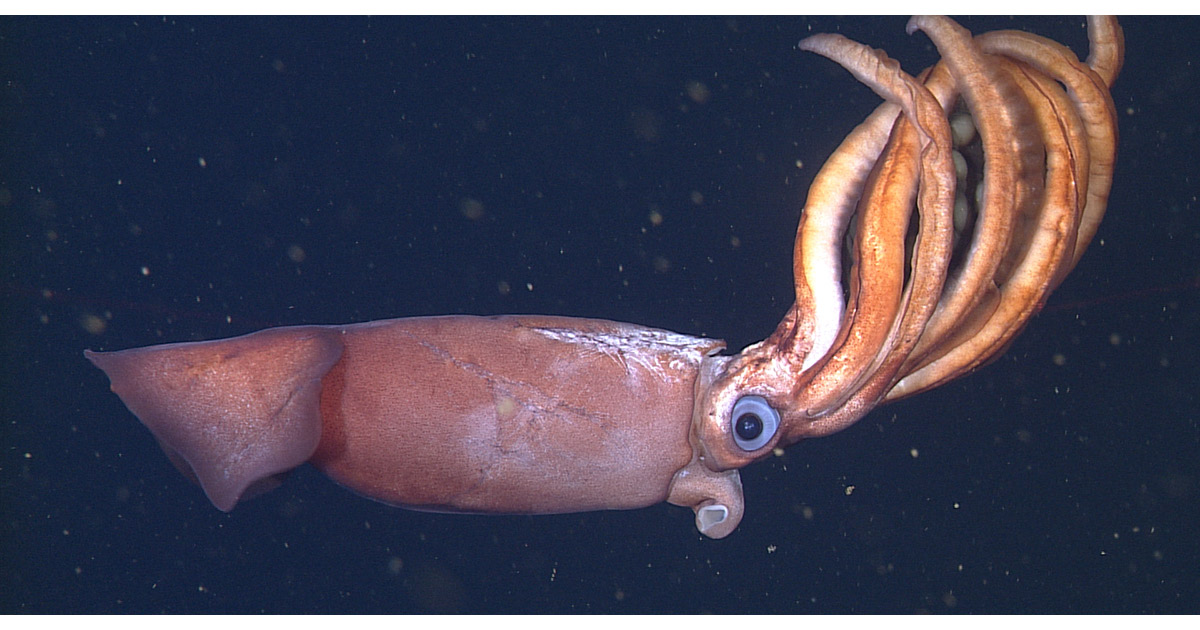
MBARI’s Advanced Underwater Robots Discover Deep-Sea Squid that Broods Giant Eggs
The deep sea is the largest living space on Earth, but many of the animals and habitats far beneath the ocean’s surface remain shrouded in mystery. MBARI’s...
Welcome to ScubaBoard, the world's largest scuba diving community. Registration is not required to read the forums, but we encourage you to join. Joining has its benefits and enables you to participate in the discussions.
Benefits of registering include

That's some serious battery life to do that. I was at Seawork in Southampton a week ago. The National Oceanographic Centre had an unstaffed booth and had their AUV Boaty McBoatface there (as the R/V was named the Sir David Attenborough). I did speak to 3 members, and give them the card for my NGO to see if we could loan them my laser scanner to do some underwater laser surveying with it.I'm waiting for the day they retrieve an autonomous, AI driven ROV that spends a month below 1,000 feet, and surfaces for it's data dump.
No doubt there are still incredible finds to be made in the deep sea. Hopefully, ocean floor mining won't have ruined everything before we make these discoveries.
I don't see batteries being a limiting factor; just load more of 'em! Besides, it can just be parked at a certain depth until a directional radar sees "something" worth investigating.That's some serious battery life to do that. I was at Seawork in Southampton a week ago. The National Oceanographic Centre had an unstaffed booth and had their AUV Boaty McBoatface there (as the R/V was named the Sir David Attenborough). I did speak to 3 members, and give them the card for my NGO to see if we could loan them my laser scanner to do some underwater laser surveying with it.
The questions are (a) what would they want to use the laser scanner for? (b) would they be able to get funding? (as I'd only provide the hardware) and (c) if they have an answer to (a) and answer yes to (b), when would this expedition take place?
Batteries are heavy. Using side scanning sonar is a better way of finding items of interest. That's one thing I'm going to invest in for searching for ancient wrecks in the Aegean.I don't see batteries being a limiting factor; just load more of 'em! Besides, it can just be parked at a certain depth until a directional radar sees "something" worth investigating.
Laser scanners are another tool in the toolbox. Photogammetry doesn't come close when it comes to resolution and accuracy (like less that 0.1 mm). Photogammetry models fall apart up close, but look nice at a distance.Upon a little bit of thinking about this, maybe I'm not surprised that they wouldn't quite know what to do with an underwater laser scanner. Would it have better range than simple photography? Modern photogrametry can build some pretty amazing 3D models off of photo-revolves.
Well I do have a Washington state based 501c3 as well as an NGO in Greece. If an academic institution needed this kind of support, I would happily loan my laser scanner. However, I think there's more activity in the Great Lakes. The viz in the Puget Sound and bottom of Lake Washington have horrible visibility. If you can't see it, you can't laser scan it. Now I'm part owner of Newton Labs, the manufacturer of my laser scanner. The best we could do is upgrade the laser for more power. But if the viz is under 1 foot, forget about scanning it.Ever consider looking for submerged archaeological sites? Isn't the Pacific NW chock full of potential sites? Talk about making your mark!
